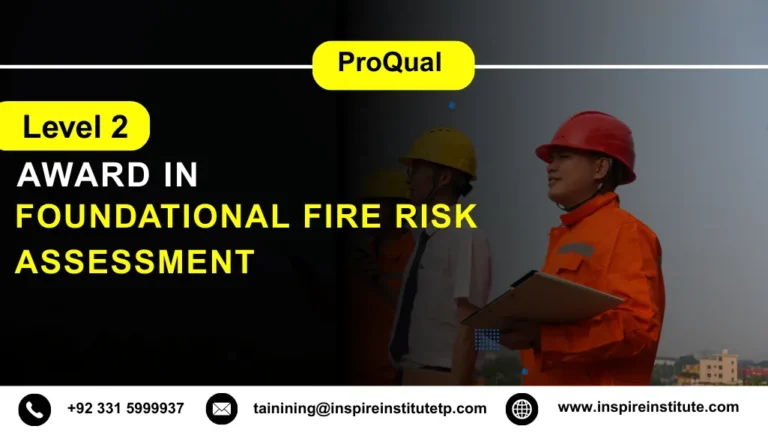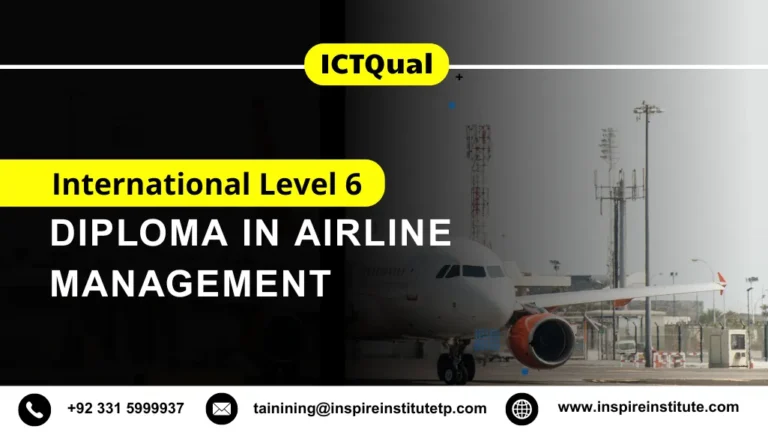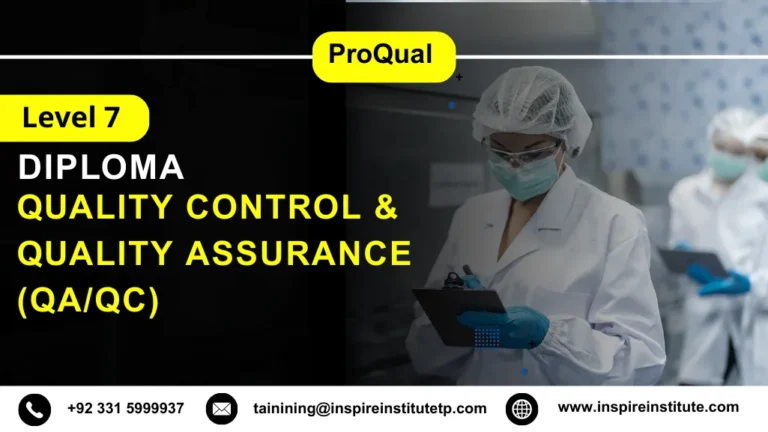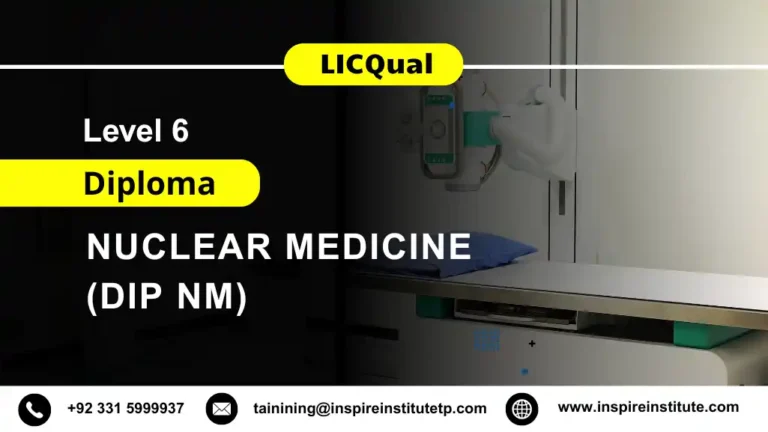ProQual Level 6 Diploma in Hostile Environment Operations
The ProQual Level 6 Diploma in Hostile Environment Operations is an advanced qualification designed for professionals who operate in challenging and often dangerous settings. This diploma provides participants with the essential skills, knowledge, and practical experience needed to navigate and manage risks associated with hostile environments effectively. It is particularly relevant for those in security, humanitarian aid, energy, and emergency services sectors. The ProQual Level 6 Diploma in Hostile Environment Operations is a vital qualification for professionals aiming to excel in demanding roles. With its focus on practical skills, risk management, and legal considerations, this diploma prepares graduates to navigate the complexities of hostile environments confidently and effectively. For those ready to take their career to the next level, this course offers a pathway to enhanced expertise and professional growth.
Why Choose this Qualification
Choosing the ProQual Level 6 Diploma in Hostile Environment Operations is a strategic decision for professionals seeking to excel in high-risk environments. This course stands out for its comprehensive curriculum, which provides a deep understanding of the principles and practices essential for operating safely and effectively in hostile settings. Participants will gain valuable insights into risk assessment, crisis management, and tactical operations, equipping them with the skills needed to respond adeptly to various challenges.
One of the key advantages of this diploma is its recognition within the industry. As a nationally accredited qualification, it enhances your credibility and demonstrates your commitment to professional development. Employers in the security, military, and humanitarian sectors highly value this certification, making it a significant asset in advancing your career. Earning this diploma can open doors to more senior roles and specialized positions that require expertise in managing operations in dangerous situations.
The ProQual Level 6 Diploma in Hostile Environment Operations is an excellent choice for individuals committed to enhancing their skills and career prospects in challenging environments. The combination of comprehensive training, industry recognition, practical experience, and networking potential makes this course a pivotal step toward achieving your professional goals.
Course Overview
Ofqual Regulated Qualification
Course Level: Level 6
Average Completion Time:
6-18 Months
Mandatory Units: Complete one Mandatory Units
Evidence & Assignment Based
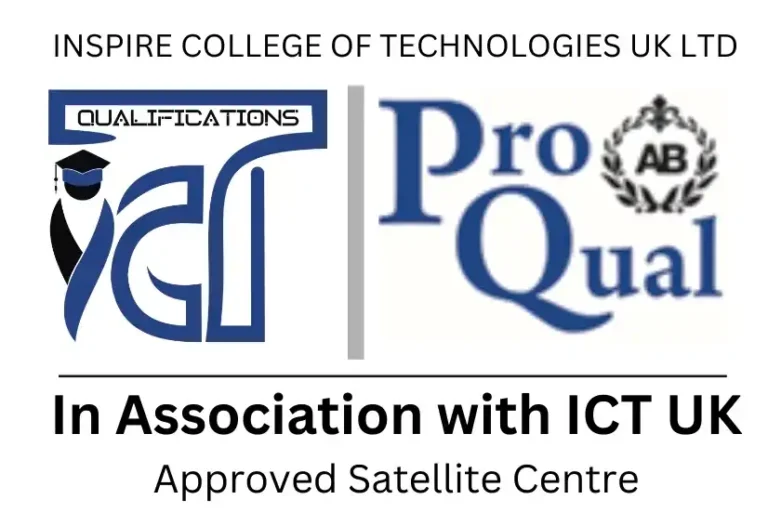
Inspire Institute of Technologies is Approved Satellite Centre of ProQual
Qualification Structure
The ProQual Level 6 Diploma in Hostile Environment Operations, achieve the qualification candidates must achieve all of the mandatory units:
Mandatory Units
| Unit Title | Unit Level |
| Hostile environment operations | 6 |
Who Should Take This Course
The ProQual Level 6 Diploma in Hostile Environment Operations is designed for a diverse group of professionals who operate or aspire to work in high-risk environments. Here are the key target audiences for this course:
1. Security Professionals
- Private Security Contractors: Individuals providing security services in potentially dangerous settings.
- Close Protection Officers: Professionals tasked with safeguarding individuals in hostile situations.
2. Military Personnel
- Active Duty Members: Service members seeking advanced training in operational tactics and safety protocols.
- Veterans Transitioning to Civilian Roles: Those looking to apply military skills in the private security sector.
3. Law Enforcement Officers
- Police Officers: Those involved in operations that may require skills in managing threats in high-risk areas.
- Specialized Units: Members of tactical response teams or SWAT units needing specialized training.
4. Humanitarian and NGO Workers
- Aid Workers: Individuals working for humanitarian organizations in conflict zones or unstable regions.
- NGO Staff: Professionals managing programs in areas with security challenges.
5. Risk Management Specialists
- Crisis Managers: Individuals responsible for developing and implementing safety protocols in high-threat situations.
- Safety Coordinators: Professionals focused on ensuring the well-being of staff in dangerous environments.
6. Aspiring Security Professionals
- Career Changers: Individuals looking to enter the security field and enhance their skills for a successful transition.
- Students in Security Studies: Those pursuing a career in security or risk management who want practical, hands-on training.
This diploma is essential for anyone committed to enhancing their expertise and operational readiness in hostile environments, making it a valuable investment for personal and professional growth.
Course Benefits
The ProQual Level 6 Diploma in Hostile Environment Operations offers a range of benefits for professionals operating in high-risk settings. Here are some key advantages of this qualification:
1. Comprehensive Knowledge and Skills
Participants gain a thorough understanding of the principles of hostile environment operations, including risk assessment, tactical planning, and crisis management. This comprehensive training equips you to handle a variety of challenging situations effectively.
2. Industry Recognition
The diploma is nationally recognized, enhancing your professional credibility. Earning this qualification signals to employers your commitment to safety and operational excellence, making you a more attractive candidate in the job market.
3. Career Advancement Opportunities
Completing this course can open doors to advanced positions in security, military operations, and emergency management. It enhances your qualifications for roles that require specialized knowledge in high-risk environments.
4. Practical Training Approach
The course emphasizes hands-on training, including simulations and real-world scenarios. This practical experience ensures you can apply your skills effectively in actual situations, increasing your confidence and preparedness.
5. Improved Safety Awareness
Participants learn critical safety protocols and risk mitigation strategies, contributing to safer operations in hostile environments. This knowledge is essential for protecting yourself and others in high-threat situations.
6. Networking Opportunities
Enrolling in this diploma allows you to connect with industry professionals, peers, and trainers. Building a network in the security and defense sectors can lead to valuable collaborations and career opportunities.
7. Flexibility in Learning
Many accredited training providers offer flexible learning options, including online and blended formats. This flexibility makes it easier to balance your studies with work and personal commitments.
8. Personal and Professional Growth
The diploma fosters essential skills such as critical thinking, leadership, and decision-making under pressure. These competencies are invaluable for personal development and effective performance in high-stress environments.
By choosing the ProQual Level 6 Diploma in Hostile Environment Operations, you position yourself for success in demanding roles, equipped with the skills and knowledge necessary to navigate and manage challenges in high-risk settings.
Eligibility Criteria
By ensuring these steps are taken, candidates can better prepare for the qualification and maximize their learning experience.
Educational Background:A minimum of a Level 5 qualification in a relevant field, such as security studies, risk management, or emergency services. Consideration may also be given to significant professional experience in a related area.
Professional Experience:Relevant work experience in security, humanitarian aid, or any role involving operations in high-risk environments is highly desirable.
Technical Skills:Familiarity with risk assessment tools and crisis management techniques is advantageous but not mandatory.
Communication Skills:Strong verbal and written communication skills are essential for effective collaboration and reporting in high-pressure situations.
Commitment to Professional Development:A demonstrated willingness to engage in ongoing learning and professional growth within the field of hostile environment operations.
The Qualification Process
Here is a step-by-step guide to help you understand the entire journey from pre-registration to certification:
- Self-Assessment:
Begin by evaluating your eligibility for the course. Ensure you meet the entry requirements, such as relevant qualifications or professional experience, as outlined for the program. - Registration:
Complete your registration by submitting the required documents, including a scanned copy of a valid ID, and pay the necessary registration fee. This is your first official step in the qualification process. - Induction:
An assessor will conduct an induction session to verify your eligibility and introduce you to the evidence requirements. During this stage:- If the assessor finds that you meet all the necessary criteria, you will proceed to the next step.
- If you do not meet the entry requirements, your registration will be canceled, and your fee will be refunded.
- Evidence Submission:
Based on the assessment criteria, you will need to submit evidence demonstrating your knowledge and competence. Consult with your assessor if you need clarification on the type and nature of the evidence required. This evidence could include assignments, projects, case studies, or professional experiences related to sustainability management. - Feedback and Revision:
The assessor will review your submitted evidence and provide feedback. Evidence that meets the required criteria will be marked as “criteria met.” If there are any gaps, the assessor will highlight them, and you will need to address those gaps by revising and resubmitting the evidence. - Competence Evidence:
Submit your final evidence demonstrating that you have successfully achieved all the learning outcomes. The assessor will mark your submission as “Criteria met” once everything is up to standard. - Internal Quality Assurance (IQA):
After your evidence is approved by the assessor, the Internal Quality Assurance Verifier (IQA) will review it to ensure that the assessment was carried out consistently and according to ProQual standards. - External Verification:
The IQA then presents your portfolio to ProQual External Quality Assurance Verifiers (EQA) for final confirmation. The EQA may contact you directly to verify the authenticity of your evidence. - Certification:
Once all internal and external checks are completed to satisfaction, ProQual will issue your official certificate, confirming that you have successfully achieved the qualification.
This comprehensive process ensures that learners demonstrate all necessary competencies and meet the high standards required for the ProQual Level 6 Diploma in Hostile Environment Operations.


